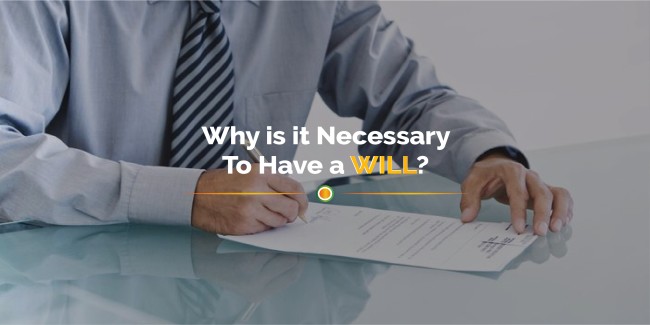A WILL is a legal document that dictates how you want your assets to be distributed after you’ve passed on. It’s a fluid document because it has no effect until you die which means you can change it whenever you want. The document must comply with several requirements under state law- the number of witnesses to make it valid. It also means that you, rather than your state’s laws, decide who gets your property when you die. In most cases, WILLS are typewritten legal document & it ends with your signature, witnesses’ signatures & notary public’s oath about the validity of the various signatures.
The document may include how you wish your estate to be distributed after your death, including provisions for any tangible personal property that you own as well as naming guardians for any minor children. It indicates what sources will be used to pay any estate taxes and debts that are due.
It names an executor who will be responsible for the settlement for your estate. The executor named in the will, typically presents the will to the local clerk of court and asks the court to authorize the executor’s administration of the estate. This process of presenting the will and administering the estate is called the “probate” process.
What are the essential components of a WILL?
Here are a few essential components of WILL drafting:
- Name of the “Testator” of the Will
- Date and place where the Will is being written
- Two witnesses
- Testator & witnesses need to sign the Will
- Details of the assets which “Testator” wants to transmit to his Legal Heirs
- Name of the beneficiaries (people who will get the assets)
- Details pertaining to share of the entire beneficiary
- Name of a person (s) who will be the executor of the Will
If you die without a will, it is known as intestate, each state has a default plan for how property must be distributed, depending on your marital status. The purpose of intestate succession statutes is to distribute the decedent’s wealth in a manner that closely represents how the average person would have designed his or her estate plan, had that person had a WILL.
An important reason to have a will is that it allows you to minimize your estate taxes. The value of what you give away to family members or charity will reduce the value of your estate when it’s time to pay estate taxes. Procrastination and unwillingness to accept death as part of life are common reasons to not having a will. But it is wise to meet with an estate planning professional to help you draw up a basic estate planning WILL.

